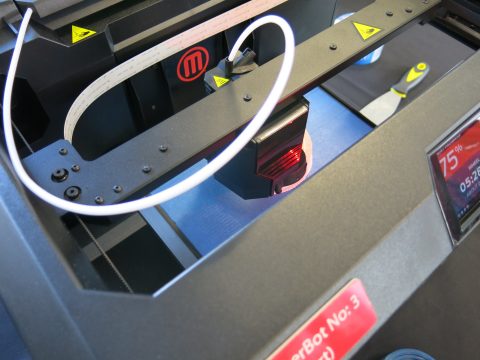Drawing on the results of a project completed for the European Commission, the talk will consider the IP implications arising from 3D printing and 3D scanning, with particular focus on copyright and cultural organisations. In doing so, the presentation will give an insight into the IP implications surrounding the 3D printing and scanning process, from the perspective of designing a CAD file to sharing, printing and distributing it.
Cambridge Information and Intellectual Property Meeting (CIIPM) for Legal Practitioners will be held virtually for the first time. The theme of the event will be ‘Maximising your IP Portfolio with ‘2020’ Vision’. Professor Dinusha Mendis will join speakers from industry, policy and academia to discuss future innovations and its implications for IP law. In particular, Professor Mendis will focus on the implications for 3D printing, with an emphasis on the past, present and future.
Organised by the the European Communities Trademark Association (ECTA) in collaboration with the European Commission, the event will explore design aspects relating to 3D printing and 3D scanning. Basing the recently published report co-authored by Professor Dinusha Mendis and co-authors on the ‘Intellectual Property Implications of Industrial 3D Printing’ this talk will focus mainly on the design implications relating to 3D printing and 3D scanning.
This presentation will provide an overview of the commissioned project completed for the European Commission in April 2020. Combining an in-depth legal analysis with empirical data drawn from interviews with 40+ industry stakeholders, the talk will draw on the findings as well as setting out the conclusions and recommendations from seven sectors which were explored, as part of this project. Amongst them, the health sector was considered, and the presentation will further provide an insight into some of the findings to be considered during the current pandemic.
The invited talk was delivered as part of the seminar series of Centre for Intellectual Property and Information Law (CIPIL) at University of Cambridge.
A large scale empirical and legal study on the Intellectual Property Implications of the Development of Industrial 3D Printing, commissioned by the European Commission in 2018 to the Centre for Intellectual Property Policy and Management (CIPPM) was published in April 2020. The published report (spanning 257 pages), provides an in-depth exploration of the past and current industrial applications of Additive Manufacturing (AM) and…
In this context, the chapter will, first, consider the legal status of a Computer-Aided Design (CAD) file within the context of registered and unregistered design, before proceeding to consider the implications presented through infringement and possible exceptions available for users.
The book, which will be presented in two parts, aims to provide an in-depth consideration of the intellectual property implications of 3D printing in Part I, before moving on to a consideration of the legal and intellectual property challenges posed by future and emerging technologies in Part II.
This commissioned project/report for the European Commission explores the IP Implications of the Development of Industrial 3D Printing from a European perspective. The report aims to enhance the European business sector and foster innovation. Through a legal and empirical analysis, involving qualitative data drawn from interviews with 41 industry stakeholders, the findings from the project demonstrates the areas which needed to be addressed – and resolved.
The 2019 edition focused on Copyright and AI, Brexit, legal tech and copyright, funding of copyright claims as well as legal case law and legal updates.
Professor Dinusha Mendis from the Department of Humanities and Law at Bournemouth University explored the copyright issues surrounding technologies such as 3D printing and 3D scanning and offered a number of insights from her recent research including insights from her recently published co-edited book, 3D Printing and Beyond: Intellectual Property and Regulation.
The project commissioned by the European Commission to Bournemouth University, aims to formulate a clear picture of the Intellectual Property (IP) framework that could enhance the competitiveness of the Additive Manufacturing (AM) sector in Europe. As such, the workshop was attended by academics, practitioners, businesses and policy makers thereby bringing together key stakeholders in the field of 3D printing and IP laws.


